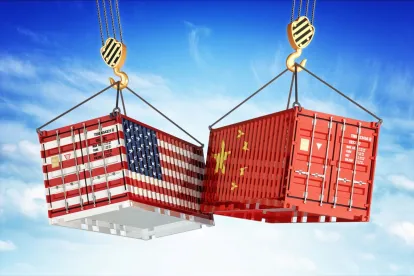The United States is taking increasingly aggressive actions to prohibit imports from China that may have been produced by forced labor. According to the U.S. Department of Labor, China has arbitrarily detained more than one million Uyghurs and other Muslim minorities in China’s far western Xinjiang Uyghur Autonomous Region (“XUAR”). Muslim minorities there are reportedly subjected to forced labor, torture, and political indoctrination. In response, the United States issued Withhold Release Orders (“WROs”) on certain goods produced by specific companies in the region. In January 2021, however, the U.S. Customs and Border Protection (“CBP”) increased its pressure on goods from XUAR through the issuance of a broad-sweeping WRO on all cotton and tomato products from the region, including its downstream products (see our post here).
Last month, on February 18, 2021, the U.S. House of Representatives reintroduced the Uyghur Forced Labor Prevention Act, which is an updated version of H.R. 6210 that passed the House in 2020 with overwhelming support (406-3).[1] The bill comes on the heels of a bipartisan Senate Version introduced in January by U.S. Senators Marco Rubio (R-FL) and Jeff Merkley (D-OR). Essentially, the Bill proposes to ban all products from XUAR unless an importer can prove through “clear and convincing evidence” that the good was not made by forced labor.
Background on WROs
Pursuant to existing legal authorities, CBP can withhold release of goods when information “reasonably but not conclusively” indicates that the merchandise was produced using forced labor. [2] Forced labor is defined as “all work or service which is exacted from any person under the menace of any penalty for its nonperformance and for which the worker does not offer himself voluntarily” as well as forced child labor or indentured child labor.[3]
The WRO prevents the goods from entering the United States. Importers are left with just two options: either export the shipments back out of the United States, or submit information showing that the goods were not made with forced labor. If an importer pursues the latter option, it must do so within 3 months of importation and submit a certificate of origin as well as a detailed statement demonstrating that the subject merchandise was not produced with forced labor, e.g., a supply chain audit report. As you can imagine, this is a relatively burdensome compliance obligation depending on the value of goods.
XUAR-Related WROs
The U.S. Government, under the Trump Administration, has issued a series of targeted WROs on certain products and companies operating in XUAR. The WROs not only impact the designated entities and its products, but more broadly companies that rely on these goods as part of their supply chain. For convenience, the table below outlines the XUAR-related WROs, including the covered products and companies.
| Date | Merchandise | Manufacturers | Status |
| 09/30/2019 | All Garments | Hetian Taida Apparel Co., Ltd. (see here) | Active |
| 05/01/2020 | Hair Products | Hetian Haolin Hair Accessories Co., Ltd. (see here). | Active |
| 06/17/2020 | Hair Products | Lop County Meixin Hair Products Co., Ltd. (see here). | Active |
| 08/11/2020 | Garments | Hero Vast Group (including Shanghai Hero Vast International Trading Co., Ltd.; Henan Hero Vast Garment Co., Ltd.; Yuexi Hero Vast Garment Co., Ltd.; Ying Han International Co., Ltd.; and Hero Vast Canada Inc.) (see here). | Active |
| 08/25/2020 | Hair Products | Lop County Hair Product Industrial Park (see here). | Active |
| 08/25/2020 | Labor | No. 4 Vocation Skills Education Training Center (VSETC) (see here). | Active |
| 09/03/2020 | Apparel | Yili Zhuowan Garment Manufacturing Co., Ltd. and Baoding LYSZD Trade and Business Co., Ltd. (see here). | Active |
| 09/08/2020 | Cotton and Processed Cotton |
Xinjiang Junggar Cotton and Linen Co., Ltd. (see here). |
Active |
| 09/08/2020 | Computer Parts | Hefei Bitland Information Technology Co., Ltd. (see here). | Active |
| 11/30/2020 | Cotton and Cotton Products | Xinjiang Production and Construction Corporation (XPCC) and its subordinate and affiliated entities (see here). See our post here. | Active |
| 01/13/2021 | Cotton, Tomatoes, and Downstream Products (e.g., apparel, textiles, tomato seeds, canned tomatoes, tomato sauce, and other goods made with cotton or tomatoes.) | All manufacturers in XUAR. See our post here. The WRO was issued against cotton and tomatoes and their downstream products produced in whole or in part in the XUAR, and includes downstream products produced outside the XUAR that incorporate these inputs. | Active |
Most recently, the USG ratcheted up its pressure by issuing the January 13 WRO targeting all cotton and tomato products, including downstream products, from XUAR regardless of manufacturer or producer. This means that the WRO captures goods produced in third countries that incorporate covered XUAR inputs. CBP provided specific examples of “downstream products” to include apparel, textiles, tomato seeds, canned tomatoes, tomato sauce, and other goods made with cotton or tomatoes.
In response to inquiries received, on February 12, 2021, CBP issued FAQs discussing, among other things, the documentation requirements for goods detained pursuant to the January 13 WRO. According to CBP, “[s]upporting documentation should trace the supply chain from point of origin of the cotton or tomatoes, to the production and processing of downstream products, to the merchandise imported into the United States.” Such tracing includes:
-
For cotton products: Affidavit from yarn producer and the source of raw cotton that identifies where the raw cotton was sourced. Purchase Order, Invoice, and Proof of Payment for the yarn and raw cotton. List of production steps and production record for the yarn, including records that identify the cotton and cotton producer of the raw cotton. Transportation documents from cotton grower to yarn maker. Supporting documents related to employee’s that picked the cotton, time cards or the like, wage payment receipts, and daily process reports that relate to the raw cotton sold to the yarn producer.
-
For tomato products: Provide supply chain traceability documents pointing to the point of origin of the tomato seeds, tomatoes, or tomato products. Affidavit from the tomato processing facility that identifies both the parent company and the estate that sourced the tomato seeds and or tomatoes. Purchase Order, Invoice, and Proof of Payment for the tomato seeds, tomatoes, or tomato products, from the processing facility and the estate that sourced the raw materials. All production records for the tomato seeds, tomatoes, and/or tomato products that identify all steps, from seed to finished product, from the farm to shipping to the United States.
This is a very burdensome compliance obligation for importers, particularly those that have not conducted comprehensive reviews or audits of their supply chain. Although the FAQs are in response to the January 13 WRO on cotton and tomato products, we believe that CBP’s guidance can be applied more generally to the existing WROs as well as future ones.
We continue to urge U.S. importers to carefully review their supply chains to identify products that could be sourced, even in part, by goods subject to the WROs. As detailed in our prior post, CBP has issued supply chain due diligence guidance that provides importers with resources to help detect goods manufactured by prohibited forms of labor. Conducting appropriate due diligence on supply chains can help avoid or mitigate CBP’s stiff financial penalties associated with importing products made with forced labor.
WROs Under the Biden Administration
We expect that the Biden Administration will follow a similar approach to the Trump Administration in using its legal authority to designate companies in XUAR that use forced labor, and prohibit imports of goods made using forced labor. President Biden’s United States Trade Representative (“USTR”), Katherine Tai, said during confirmation hearings that forced labor in XUAR is a “top priority,” calling it “the crudest example of the race to the bottom in global trade.”
If Congress does not pass a comprehensive ban on all goods produced in XUAR (discussed below), it is likely that we will continue to see additional WROs on goods and companies operating in XUAR. Though it is difficult to predict the scope of future WROs (e.g., whether they would be targeted or comprehensive), we expect enforcement to ramp up in light of recent CBP guidance as well as Congressional and public interest on the issue of forced labor in XUAR.
Reputational Risks for Companies
In addition to the compliance risks posed by these emerging prohibitions, there are important reputation risks. There is a growing awareness in the United States and abroad of the abuses being reported in XUAR. Consequently, even companies that are already relatively comfortable with their supply chains in the region are considering conducting enhanced supply chain due diligence, even if only to be in a position to address customer concerns directly.
Summary of the Proposed Uyghur Forced Labor Prevention Act
Last month, the House reintroduced the Uyghur Forced Labor Prevention Act. The bill would require, among other things, the following:
-
Prohibits all imports from the XUAR unless CBP can certify that the goods being imported to the U.S. are not produced, either wholly or in part, with forced labor and CBP submits to Congress a report outlining such a determination;
-
Authorizes targeted sanctions on anyone responsible for the labor trafficking of Uyghurs and other Muslim ethnic minorities; and
-
Requires financial disclosures from U.S. publicly traded businesses about their engagement with Chinese companies and other entities engaged in mass surveillance, mass interment, forced labor and other serious human rights abuses in the XUAR.
-
Requires a strategy report from the Forced Labor Enforcement Task Force (established by the United States-Mexico-Canada Agreement Implementation Act) and regular updates on the steps taken to enforce the import prohibition on forced labor made goods from the XUAR.
Similar to WROs, the bill would impose a “rebuttable presumption” that imported goods were not made with forced labor and therefore allow their entry into the U.S. The law would require CBP to determining via “clear and convincing evidence” that the good in question was not produced wholly or in part by convict labor, forced labor, or indentured labor under penal sanctions.
We will continue to monitor this legislation, particularly in how companion legislation fares in the U.S. Senate. We expect that the House version would pass a vote in the House and, if moved to the Senate, would have an even greater likelihood of success, given the Senate’s current makeup.
FOOTNOTES
[1] On September 22, 2020, the House overwhelmingly passed the bill that would bar entry into the U.S. products made “wholly or in part” in the Xinjiang region or by certain persons working in the Xinjiang region. Under the proposed legislation, products could have been admitted if CBP determined by “clear and convincing evidence” that the products were not made by a prohibited form of labor.
[2] 19 C.F.R. § 12.42(e).
[3] 19 C.F.R. § 12.42(a).




 />i
/>i
